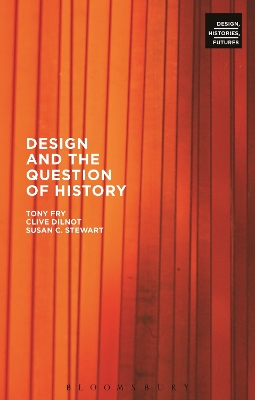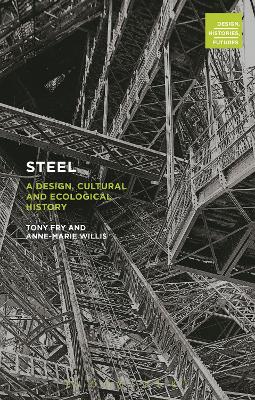Design, Histories, Futures
2 total works
Design and the Question of History
by Clive Dilnot, Tony Fry, and Susan Stewart
Design and the Question of History is not a work of Design History. Rather, it is a mixture of mediation, advocacy and polemic that takes seriously the directive force of design as an historical actor in and upon the world. Understanding design as a shaper of worlds within which the political, ethical and historical character of human being is at stake, this text demands radically transformed notions of both design and history. Above all, the authors posit history as the generational site of the future. Blindness to history, it is suggested, blinds us both to possibility, and to the foreclosure of possibilities, enacted through our designing.
The text is not a resolved, continuous work, presented through one voice. Rather, the three authors cut across each other, presenting readers with the task of disclosing, to themselves, the commonalities, repetitions and differences within the deployed arguments, issues, approaches and styles from which the text is constituted. This is a work of friendship, of solidarity in difference, an act of cultural politics. It invites the reader to take a position - it seeks engagement over agreement.
The research for the book is informed by diverse sources including industry journals, contemporary accounts and technical literature - all framed by rich, early accounts of iron and steel making from the middle ages to the opening of the industrial age, and most notably, the crucial works of Vannoccio Biringuccio, Georgius Agricola, Andrew Ure and Harry Scrivenor.
In contrast, trans-cultural accounts of the history of metallurgy from eminent sinologists and cultural historians like Joseph Needham and G.E.R. Lloyd are used. Readings on the pre-history and history of science, as well as histories and philosophies technology from scholars such as Siegfried Giedion, Merritt Roe Smith, L.T.C Rolt, Robert B. Gordon inform the analysis. Social and economic history from historians such as Eric Hobsbawn, William T. Hogan and David Brody are consulted; labour process theory is also examined, particularly the influential writings of F.W. Taylor in the late 19th and early 20th centuries and his contemporary critics, like David Nobel and Harry Braverman. Many other disciples also inform the account: histories of urban design and architecture, transport and military history, environmental history and geography.

